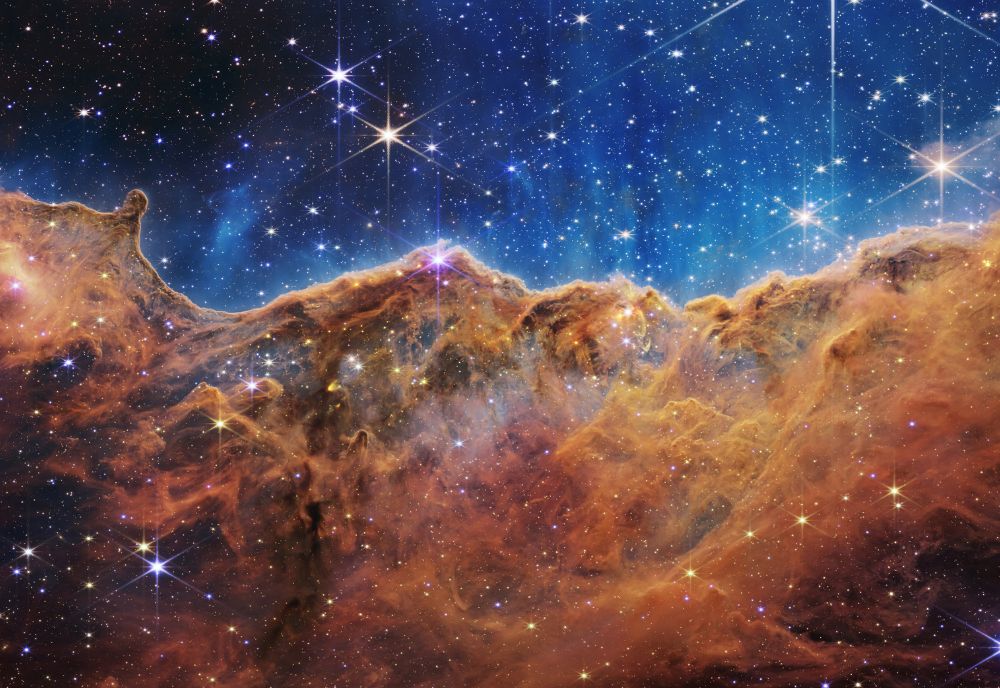
David K. Johnson, Ph.D.
After the launch of NASA’s new $10 billion James Webb Space Telescope, most people around the world were caught up in a state of awe taking in the stunning images of celestial bodies. But others in the science and history community were having a more mundane conversation: Did the telescope's namesake, James E. Webb, who led NASA during the Apollo moon launches, engage in cold-war era purges of gay and lesbian government employees during his tenure in office? LGBT astronomers charged that Webb was complicit in the “Lavender Scare” and called for his name to be removed.
David K. Johnson, a professor in the Department of History in the USF College of Arts and Sciences, has been called upon repeatedly by journalists and NASA officials to weigh in on the naming controversy because he actually popularized the term after writing his book The Lavender Scare, published in 2006.
The New York Times, Scientific American, Nature, and El Pais have all used him as an expert to help explain the historical context of Webb’s time at NASA and, before that, at the State Department.
“I found no evidence that Webb played an active role in furthering the Lavender Scare,” Johnson told these news outlets.
Since the Webb telescope is used by scientists around the world, the controversy became an international one, with the British Royal Astronomical Society mandating that members refer to the telescope only by its initials: JWST.
Ironically, both sides of the controversy used Johnson’s work to bolster their claims. The LGBT astronomers behind the campaign to remove Webb’s name from the telescope pointed to a meeting Johnson documents between Webb and Congressional leaders investigating McCarthy’s charges that homosexuals posed a threat to national security.
“Activists point to his meeting as evidence that he knew about the anti-gay purges and was therefore ‘complicit’, but he was actually working with the Truman administration to suggest homosexuals posed no threat to national security,” explained Johnson.
The controversy became so heated, that NASA commissioned its own historians to investigate. The 89-page report relied heavily on Johnson’s scholarship and concluded that there was no evidence linking Webb directly to the firing of LGBT employees.
“Did Webb stand up and say he thought gay people should have equal employment rights? No. But no one in 1950s America was making that claim, not even many gay people,” Johnson noted.
Johnson sees the controversy as part of a growing movement to find a way to commemorate and atone for the government’s discriminatory policies.
“On one hand, I’m thrilled that the Lavender Scare is now such a well-known historical event that we can have public debates about it, about who was behind it, and who was affected by it,” he commented. “This is part of a growing effort to think about how the federal government should apologize for and memorialize the way it mistreated LGBT people in the past.”
Johnson offered some thoughts on a path forward, speaking on the potential impact of the proposed Lavender Offenses Victim Exoneration or LOVE Act.
“[This] would mandate that the State Department investigate all firings since 1950 that may have been caused by an inappropriate focus on sexual orientation. It would also establish a Reconciliation Board to collect the testimony of employees wrongly terminated,” he continued. “Best of all, it would establish a permanent exhibit on the Lavender Scare in the U.S. Diplomacy Center ‘to ensure that the history of this discriminatory episode is not brushed aside’.”

“This seems like a better way to seek some sort of historical justice than to erase the names of any official who served in a leadership capacity in the U.S. government during the several decades of the Lavender Scare.”
If you’re interested in learning more about the Lavender Scare, Johnson’s book “The Lavender Scare: The Cold War Persecution of Gays and Lesbians in the Federal Government” is available for purchase. The University of Chicago Press will publish a new edition of the book, with a new epilogue by Johnson, this spring.
